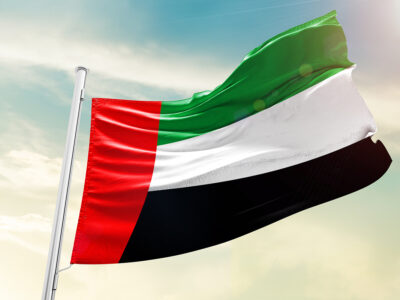Al Jazeera’s chief executive Wadah Khanfar has been revealed as the most powerful Arab in the media sector, according to ArabianBusiness.com’s Power 100 list for this year.
Khanfar, a 39-year old Jordanian who heads up the Qatar-based network, was at number 8 of the Power 100 list, the most comprehensive compilation of the world’s most influential Arabs. He dropped five places from 2007, though Khanfar runs the entire Al Jazeera network – including its live English and Arabic news channels, its sports channels, its website and a new documentary channel.
“Al Jazeera is now one of the most recognisable brands in the world, and in terms of influencing Arab opinion, there is no bigger medium than Al Jazeera,” said Arabian Business magazine about his selection in the list. “According to an Interbrand survey, Al Jazeera’s brand in the news channel sector is bigger than that of CNN and BBC.”
Last November, Khanfar stole the show at the Arabian Business Media Conference , with a keynote speech that made headlines around the world.
Speaking to a packed audience, he had said the media in the Arab world was “suffering from four major defects”, including that 24-hour news was “obsessed by breaking news”, suffered from a “severe lack of historical context”, was “betraying” the masses, and “should focus on diversity as the key to future success.”
The man seen as the second most powerful Arab in the media sector is Ghaith Abdul-Ahad, who made his name as an unembedded Iraqi journalist who began working after the US invasion and has written for The Guardian and The Washington Post.
A new entry at number 15 on the list, Abdul-Ahad was one of the last journalists to work in insurgent-held Fallujah before the American assault on that city in April 2004 and he has since continued to cover the front lines of both the Sunni and Shia insurgency movements.
The most powerful Arab woman in the media sector is Maria Maaloof, a television presenter on Lebanon’s New TV. It is her political programme, until present “Maa Maria Maalouf” on NBN satellite channel, which has attracted the attention of both Arab and international media, mainly due to Maalouf’s bold and controversial interview style, and makes her a new entry at number 36.
Maalouf also gains accolades for not only being the second-most powerful woman on the list after movie director Nadine Labaki, but also for being for being an Arab female media professional to be recognised for her achievements as none made the Power 100 list in 2007.
Other notable media professionals in this year’s list, both females, include Ahlam Mustaganmi, the most powerful Algerian in the list and Leila Al-Sheikali, who is the most powerful Qatari woman in the list.
There are fifteen entries in the Power 100 of influential Arabs in the media and marketing sector, with eight of them new entries, including George Kurdahi, Marcel Ghanem, Emad Marmar and Hamdy Kandil.
Retaining their places in this year’s list include Joseph Ghassoub, MBC’s Sheikh Waleed Al Ibrahim, Antoine Choueri, Ellie Khoury, Abdul Rahman Al Rashid and Pierre Al Daher.
Dropping out of the Power 100 this year included Ghassan Bin Jiddu, Turki Al Dakhil, al-Hayat’s Jihad Al Khazen, Hosam Sokkari, Ahmed Al Bloushi, Ramia Farrage and Ahmed Sheikh.
Lebanese media professionals dominate this year’s list, with eight entries this year compared to five last year.
Published on Sunday in Arabian Business and on ArabianBusiness.com, this year’s list includes influential Arabs from the whole gambit of fields including sport, finance, medicine, entertainment, science and technology and real estate.
For this year’s full Arabian Business Power 100 List, click here.







